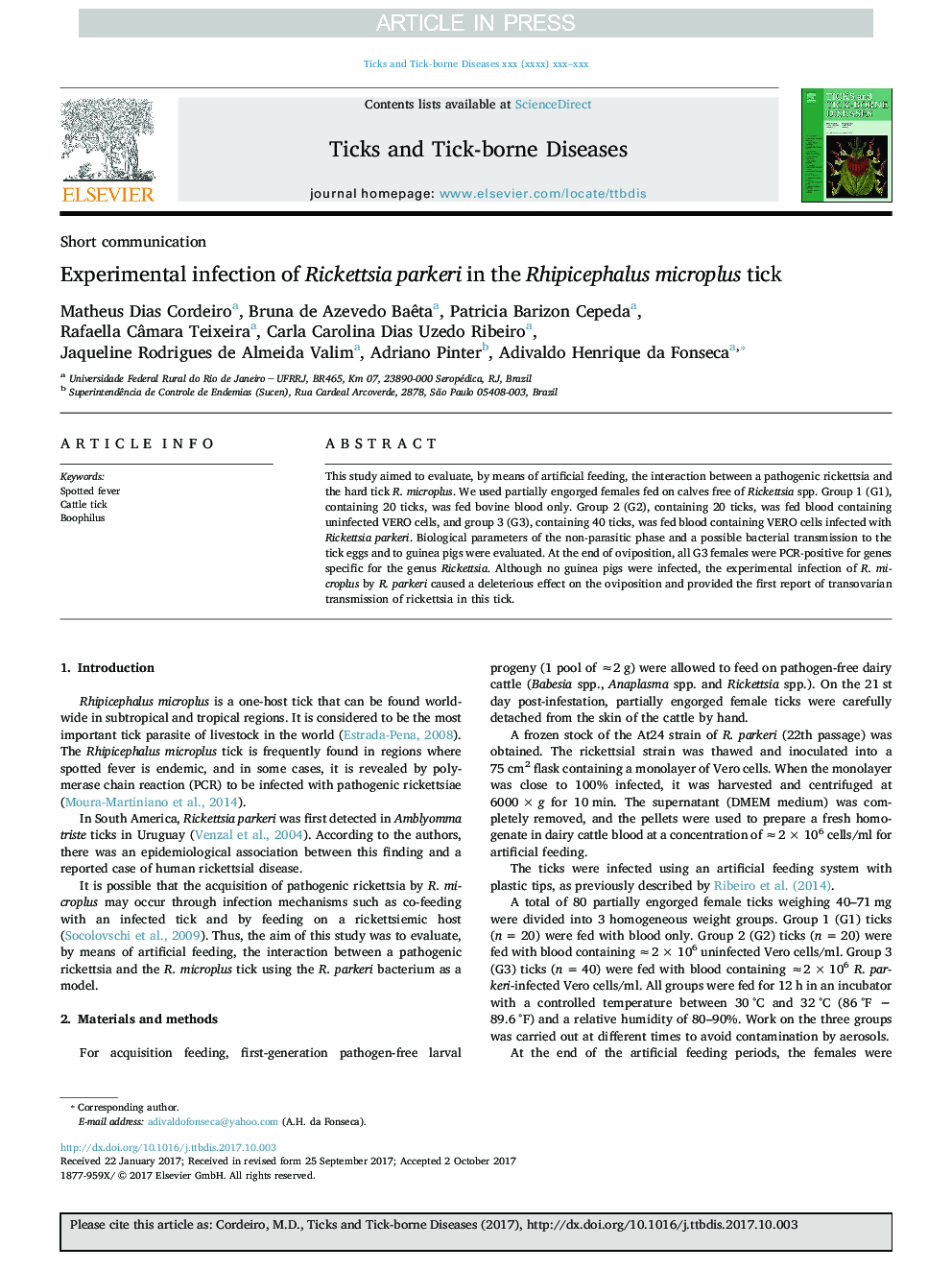| Article ID | Journal | Published Year | Pages | File Type |
|---|---|---|---|---|
| 8507475 | Ticks and Tick-borne Diseases | 2018 | 4 Pages |
Abstract
This study aimed to evaluate, by means of artificial feeding, the interaction between a pathogenic rickettsia and the hard tick R. microplus. We used partially engorged females fed on calves free of Rickettsia spp. Group 1 (G1), containing 20 ticks, was fed bovine blood only. Group 2 (G2), containing 20 ticks, was fed blood containing uninfected VERO cells, and group 3 (G3), containing 40 ticks, was fed blood containing VERO cells infected with Rickettsia parkeri. Biological parameters of the non-parasitic phase and a possible bacterial transmission to the tick eggs and to guinea pigs were evaluated. At the end of oviposition, all G3 females were PCR-positive for genes specific for the genus Rickettsia. Although no guinea pigs were infected, the experimental infection of R. microplus by R. parkeri caused a deleterious effect on the oviposition and provided the first report of transovarian transmission of rickettsia in this tick.
Keywords
Related Topics
Life Sciences
Agricultural and Biological Sciences
Animal Science and Zoology
Authors
Matheus Dias Cordeiro, Bruna de Azevedo Baêta, Patricia Barizon Cepeda, Rafaella Câmara Teixeira, Carla Carolina Dias Uzedo Ribeiro, Jaqueline Rodrigues de Almeida Valim, Adriano Pinter, Adivaldo Henrique da Fonseca,
